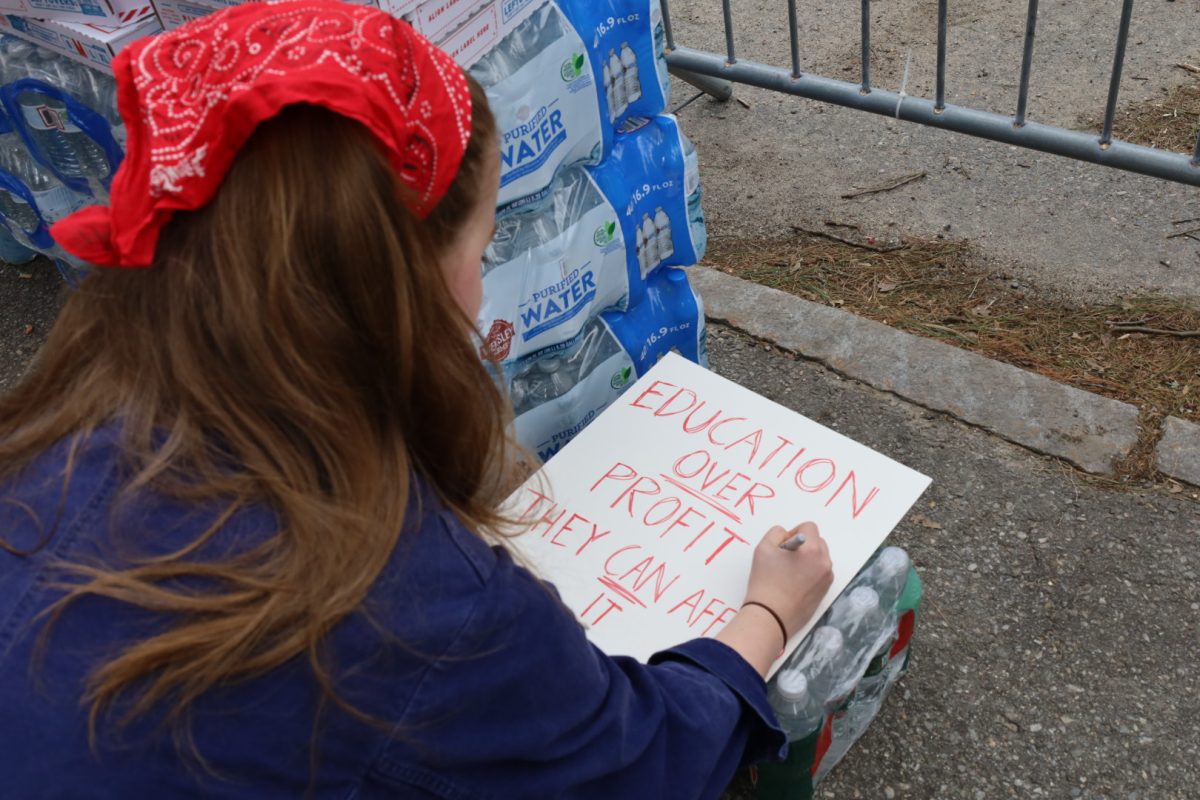Amidst the ongoing strike by NTT faculty, students have expressed dissatisfaction with the College’s handling of negotiations and the College’s credit plan enacted to preserve accreditation.
Responses to the College’s credit plan
On March 27, the first day of the strike, the Provost, Courtney Coile, informed students that they would receive 0.5 units for classes taught by NTT faculty. The day after the strike began, students received an email from the Registrar’s office providing them with details about how they could register for additional courses.
On Saturday, March 29, students were offered the chance to register for additional classes taught by non-striking faculty, with priority given to seniors in their last semester, students who were at risk of falling below the minimum required 3.0 units, and students with ADR support for priority registration.
According to an email sent out by Provost Coile, this was a necessary action on the part of the College because “the strike threatens students’ visa eligibility and financial aid eligibility, because if classes do not meet for the required number of contact hours, the College will be unable to award full credit, and some students may fall below the credit threshold.”
Federal regulations require international students to be enrolled in a minimum of three academic units to maintain their legal status in America.
In response, the Slater International Students’ Organization released a statement empathizing with international students’ anxieties and voicing their frustrations with the credit plan.
The email statement wrote, “By implementing this sudden policy without proper consultation or consideration, the administration has recklessly put us at risk — especially those of us taking courses taught by NTT faculty members. This ‘solution’ provided by the administration blatantly disregards the challenges that international students have to face to stay legally in this country.”
Domestic students also expressed concern and worry for international students affected by the changes to credit or involved in activism, especially given the sudden changes in immigration policy.
Sachiko Goto ’27, an international student who recently became a naturalized citizen, addressed the College’s credit decision, saying, “I don’t want to believe that they intend to actively harm so many students on visas and financial aid but they did not put in the bare minimum level of care required in sending out that email.”
Domestic students also weighed in about the College’s decision.
Sahiti Garimella ’28, a domestic student, noted their shock that neither Slater nor the Financial Services Office heard about the credit situation beforehand.
“It wasn’t the right decision to change [the credits], but I thought they at least would have informed everybody about it beforehand, so that people would have contingency plans in place,” Garimella said. “The fact that they were randomly making these decisions at the last minute, that affected people in this major way, without giving us time to recover, or creating a safety net of sorts for students who are affected by it was definitely very difficult.”
On March 28, the Registrar’s Office sent out an email informing students that two Zoom informational sessions to answer questions regarding the credit change would be hosted by the Registrar’s Office, the Provost’s Office and Class Deans.
Sidney Kronbach ’26, who attended both Senate meetings which addressed the credit change and the Zoom registration meeting, said, “Oftentimes questions were shut down, as opposed to answered.”
Responses to the College’s handling of the strike and negotiations
Ava Daugherty ’28 expressed anger at the lack of information provided by the College regarding the ramifications of the strike on enrollment status, immigration status, and course loads. Daugherty feels that the College “is keeping a lot of people misinformed and under informed.”
She continues that the College’s reaction and response to the strike was disappointing and unexpected for her, stating that she “thought it would be a pretty progressive place, even within the administration.”
Goto also addressed that while many international students want to support the union more vocally, they also do not want to risk their safety and legal status.
“They [international students] have no clue what the boundaries for their support are because when you’re getting emails from the administration that say just as a reminder, this can affect your visa or financial aid status, that’s scary. And then you look at the news and you see that somebody was taken right off the streets in Boston, and that ICE is right there, right down the street,” Goto said.
Students are expressing their support for the Union by showing up at the picket lines. WOAW members are picketing at Central Street and College Road by the entrance of the College everyday from 8:30 a.m. to 5 p.m.
Daugherty said, “There’s an air of excitement on the picket line. Students don’t get the chance to be as politically active as other campuses, because a lot of times they’re very swamped with work. A lot of people are really excited to finally put action to their words, in regards to what they have said that they stand for and what they believe in.”
Contact the editors responsible for this story: Sazma Sarwar and Valida Pau.




